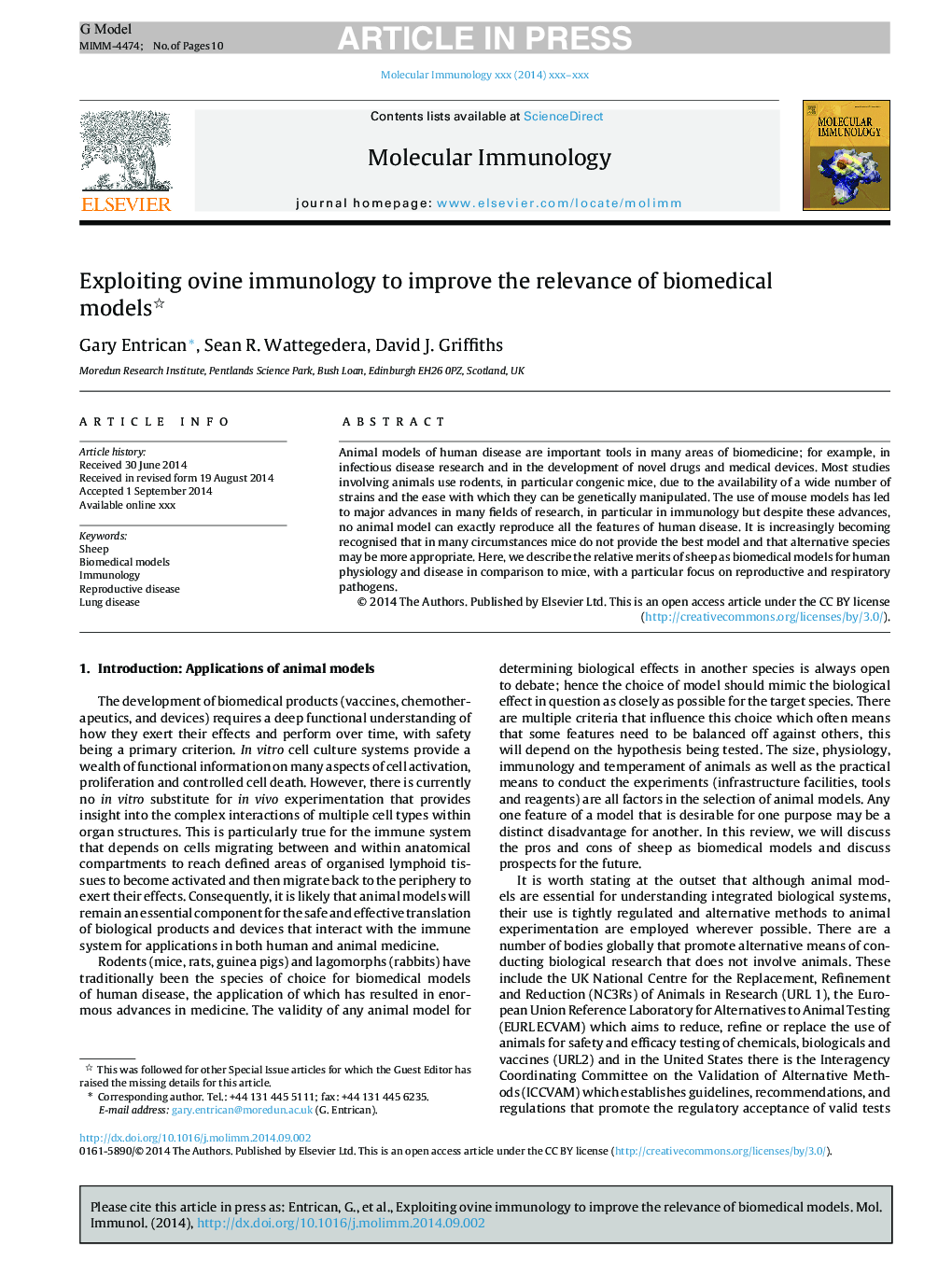| Article ID | Journal | Published Year | Pages | File Type |
|---|---|---|---|---|
| 5916750 | Molecular Immunology | 2015 | 10 Pages |
Abstract
Animal models of human disease are important tools in many areas of biomedicine; for example, in infectious disease research and in the development of novel drugs and medical devices. Most studies involving animals use rodents, in particular congenic mice, due to the availability of a wide number of strains and the ease with which they can be genetically manipulated. The use of mouse models has led to major advances in many fields of research, in particular in immunology but despite these advances, no animal model can exactly reproduce all the features of human disease. It is increasingly becoming recognised that in many circumstances mice do not provide the best model and that alternative species may be more appropriate. Here, we describe the relative merits of sheep as biomedical models for human physiology and disease in comparison to mice, with a particular focus on reproductive and respiratory pathogens.
Related Topics
Life Sciences
Biochemistry, Genetics and Molecular Biology
Molecular Biology
Authors
Gary Entrican, Sean R. Wattegedera, David J. Griffiths,
